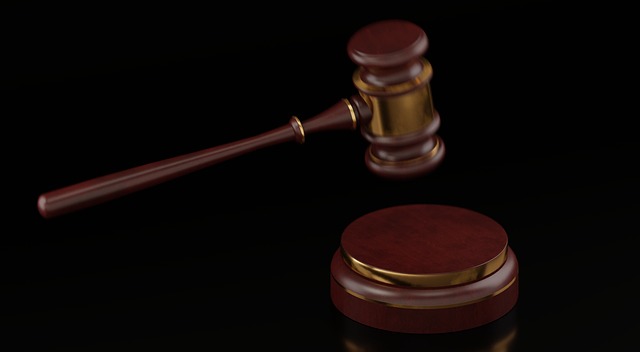Whistleblower protection lawsuits involve complex jury selection where both plaintiffs and defendants have rights. Defense attorneys may challenge evidence admissibility or whistleblower credibility to dismiss charges, while plaintiffs must prove adverse actions after reporting wrongdoing. Effective jury management through strategic Legal Grounds for Jury Selection Objections ensures fairness, excludes biased jurors, and maintains legal process integrity. This approach, balancing impartiality with diverse representation, leads to just verdicts in high-stakes, public interest cases.
Whistleblower protection lawsuits play a crucial role in upholding ethical conduct within organizations. These legal actions empower individuals to expose fraudulent or illegal activities without fear of retaliation. Understanding the basics, including legal grounds and the process of jury selection and objections, is vital for effective case management. By employing strategic approaches, whistleblowers can navigate complex legal landscapes, ensuring their voices are heard and justice served. This article delves into these key aspects, providing insights on navigating whistleblower protection lawsuits, with a focus on legal grounds, jury selection, and objection strategies.
- Understanding Whistleblower Protection Lawsuit Basics
- Legal Grounds for Filing a Whistleblower Protection Lawsuit
- The Role of Jury Selection and Objections in Trials
- Strategies for Effective Whistleblower Case Management
Understanding Whistleblower Protection Lawsuit Basics

Whistleblower protection lawsuits are legal battles centered around individuals who expose illegal activities within their organizations. These suits involve complex dynamics, particularly during jury selection, where both plaintiffs and defendants have specific rights and strategies. Understanding the legal grounds for jury selection objections is crucial in these cases.
White-collar defense attorneys often aim for a complete dismissal of all charges by challenging the admissibility of evidence or questioning the credibility of whistleblowers. In a jury trial, the ability to select an impartial jury who can objectively weigh the evidence is vital. Objections during jury selection can be based on various factors, such as bias, relevance, or procedural issues, with the goal of ensuring a fair process.
Legal Grounds for Filing a Whistleblower Protection Lawsuit

When considering a Whistleblower Protection Lawsuit, understanding the legal grounds for filing is paramount. Such suits are designed to protect individuals who expose illegal activities within their organizations from retaliation. These cases rest on a strong foundation of federal and state laws aimed at fostering ethical behavior and ensuring public safety. Key legal grounds often include violations of whistleblower protection statutes, such as those under the Sarbanes-Oxley Act (SOX) for corporate fraud or other white collar crimes.
Successful plaintiffs must demonstrate they were subject to adverse actions—including termination, demotion, or hostile work environment—after reporting suspected wrongdoing. The strength of their case is evaluated during jury selection, where attorneys may raise objections based on potential bias or prejudice. An unprecedented track record in securing favorable outcomes for both corporate and individual clients underscores the effectiveness of these legal strategies. This, coupled with a deep understanding of white collar defense tactics, is crucial in navigating complex cases and achieving justice for whistleblowers.
The Role of Jury Selection and Objections in Trials

In whistleblower protection lawsuits, particularly those involving high-stakes cases with significant financial implications and public interest, jury selection becomes a critical phase. The process allows for careful consideration of potential jurors’ backgrounds, biases, and experiences to ensure an unbiased and fair trial. Legal grounds for jury selection objections play a pivotal role here. Attorneys can challenge prospective jurors based on their connections to the philanthropic or political communities, prior knowledge about the case, or any preconceived notions that might influence their judgment. This strategic approach aims to seat a jury with an unprecedented track record of impartiality and objectivity.
During trials, objections related to juror qualifications and suitability are common. Attorneys must be adept at navigating these objections, as they can significantly impact the outcome. In such high-profile cases, where public scrutiny is intense, ensuring that the jury remains focused and unbiased is paramount. Effective jury management, including well-founded objections, helps maintain the integrity of the legal process, ultimately contributing to a just verdict regardless of the case’s political or financial implications.
Strategies for Effective Whistleblower Case Management

Managing a whistleblower lawsuit effectively requires a strategic approach that navigates complex legal landscapes. One key aspect is understanding and utilizing legal grounds for jury selection objections. These objections are crucial in ensuring a fair trial, as they allow attorneys to challenge potential jurors who may harbor biases or conflicts of interest. By carefully scrutinizing each prospective juror’s background, attitudes, and associations—especially those linked to white-collar defense or general criminal defense strategies—attorneys can build a robust case for exclusion.
This process involves probing into the juror’s experiences, knowledge, or opinions related to whistleblowing, corporate misconduct, or government investigations. Such inquiries aim to identify any preconceived notions that might interfere with impartial judgment. Effective management also entails balancing the need for an unbiased jury with the goal of preserving diverse representation, as a balanced panel can offer valuable perspectives during jury trials.
Whistleblower protection lawsuits play a crucial role in upholding justice and ensuring accountability. By understanding the legal grounds for these suits, effectively managing cases, and navigating jury selection and objections, individuals can expose misconduct and protect their rights. This comprehensive guide highlights key strategies to navigate these complex processes, fostering a culture of transparency and ethical conduct.






